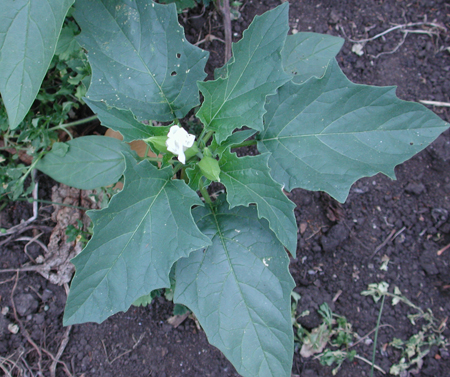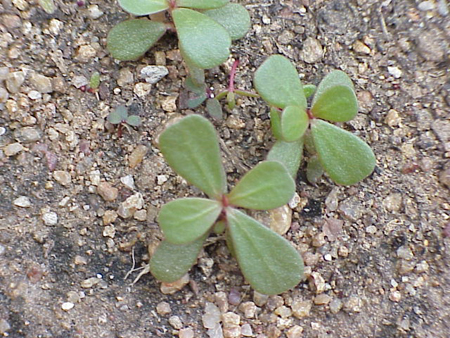|

Thornapples (Datura sp.) can cause sudden death
in stock
due to the presence of alkaloids.
|
The poisoning of humans is rare. Grazing animals often avoid poisonous
plants in pastures but may be unable to discriminate against them in hay
or silage.
It has been reported that the annual losses of livestock in USA due to
plant poisoning is approximately 15 million US dollars.
Toxic to animals
In the USA alone, some 700 plant species have been declared poisonous to livestock. Poor stock management is the primary factor determining the probability of stock poisoning, e.g. overgrazing pastures, producing nutritional stress in sparse feed areas. It has been found that half of the broadleaf plants on rangeland can be poisonous.
|

Pigweed (Portulaca oleracea) can be poisonous to
stock under
certain conditions.
|
Unpalatable to animals
Weeds may be unpalatable, nutritionally poor or may cause tainting of
animal products. For example, the wild onion (Allium sp.) causes
unacceptable flavours in meat and milk.
Toxic to humans
Some weeds may have two effects on human health, poisonous or allergenic. Human deaths from poisonous plants are 40 times greater than from pesticide poisoning. The most common poisoning is due to inedible mushrooms. Allergenic plants can cause problems via contact when contact allergens are produced or via inhalation allergens such as pollen.
|

